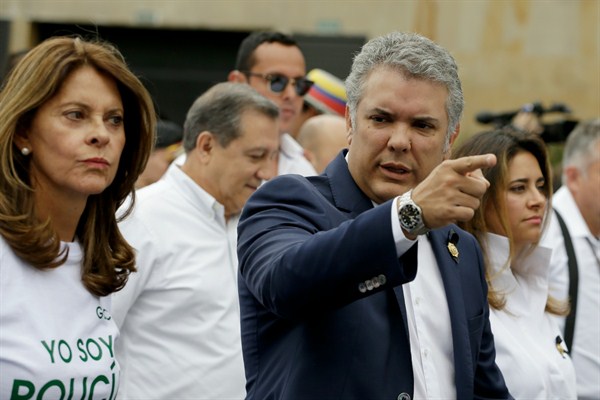Nine months into his tenure and still finding his footing, Colombia’s president is close to a bitter legislative defeat on one of the country’s most charged political issues: peace. Ivan Duque’s attempt to roll back parts of Colombia’s landmark 2016 peace accord already went down by a 110-44 vote in Colombia’s House of Representatives on April 8. The Senate went through a series of gyrations last week, initially rejecting Duque’s initiative 47-34 before ultimately sending the issue to a top court that is likely to rule against the president.
It’s bad news for Duque, but good news for Colombia’s peace deal, which ended 52 years of conflict with Latin America’s largest guerrilla group, the Revolutionary Armed Forces of Colombia, or FARC. The accord, though, is not out of trouble yet.
To put this latest episode in context, go back to early October 2016. The Colombian government and FARC leadership had just signed a peace agreement after four years of tense negotiations. A celebratory President Juan Manuel Santos, who would win that year’s Nobel Peace Prize, had sought to strengthen the accord’s legitimacy by putting it up for a national plebiscite, a simple “Yes” or “No.”

